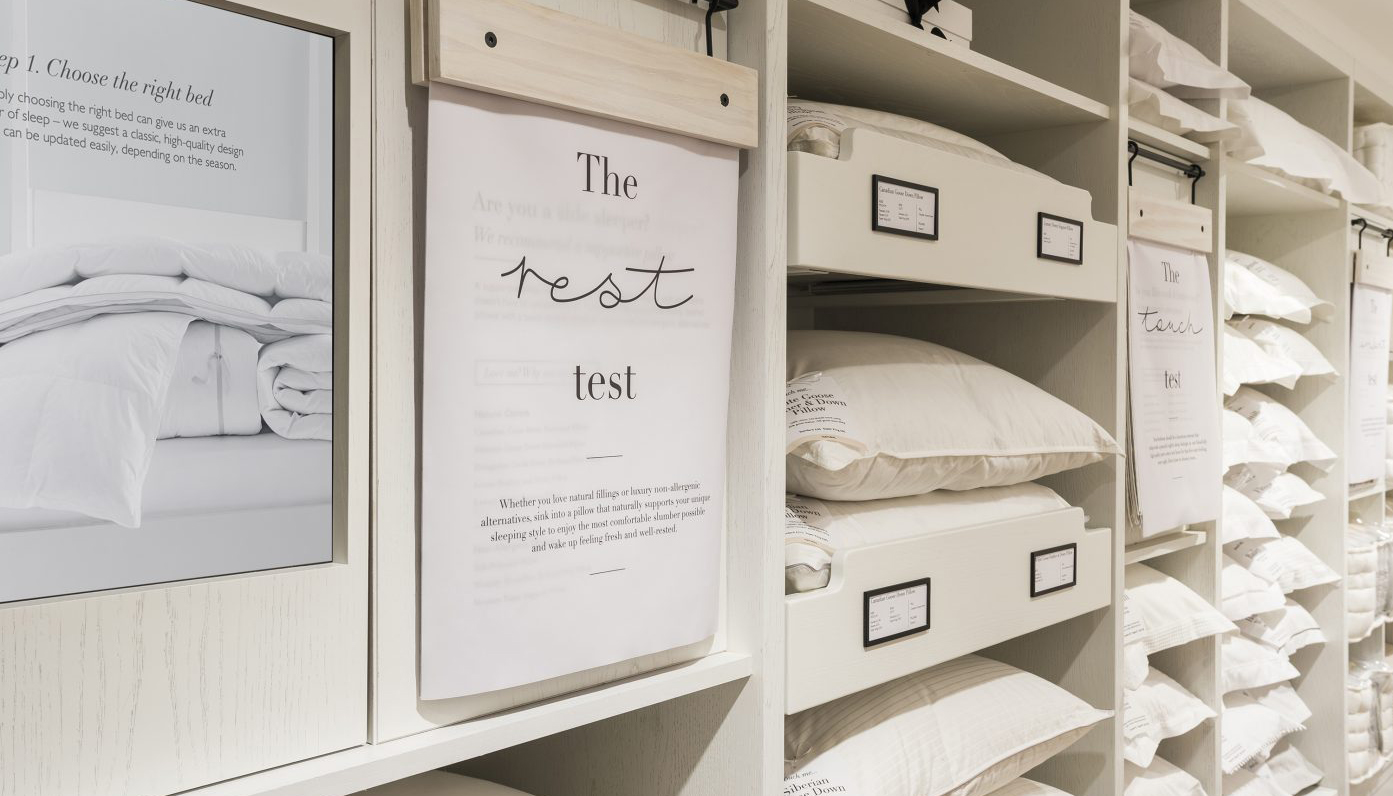As scientifically grounded health benefits of sleep gain greater recognition, the sleep economy is expanding with new products and services.
With as many as one in 10 people turning to medication to help them drop off and sleeping pills costing the NHS £50m a year, sleep is a hot topic within wellness (iNews, 2018). Recent research has revealed that people who routinely sleep five hours a night, have a 65 per cent increased risk of dying, versus those getting seven or more hours (The Guardian, 2019). As the scientifically grounded health benefits of sleep gain greater recognition, we will see the sleep economy continue to grow, with new brands entering the market and existing players diversifying their offering.
Sleep Products & Services
Brands are capitalising on the desire to improve sleep with new products and services, from story-time apps to night-time teas. Sleep apps are at the forefront of this market, providing a democratic and affordable tool to enhance sleep. Mediation app Calm runs a ‘Sleep Stories’ series, where celebrities with soothing voices read bite-size bedtime stories to help users fall asleep. The podcasts have had great success so far, helping over 100 million listeners get to sleep (CNBC, 2019). Calm’s success highlights the positive power of simple tech to enhance lives with escapism and comfort and is typical of a wider trend towards re-inventing childhood activities for an adult audience.
We are also seeing an influx of high tech inventions to tackle sleep deficiency, as highlighted at CES this year. With people changing positions between 12 and 20 times each night, and one in four people in relationships sleeping better alone (Ford, 2019), Ford has designed a Lane-Keeping Bed prototype to keep restless sleepers on their own side. The bed involves a motorised ‘infinite mattress’, with sensors to track the position of two sleepers. The mattress functions like a rotating treadmill, making adjustments throughout the night, to keep each sleeper on their own sides of the bed. The invention is part of a wider move at Ford to use its automotive expertise to tackle everyday challenges. As the demand for good sleep continues to grow we will increasingly see out of sector brands tap into this lucrative market.
Sleep Experiences in Retail
When it comes to selling sleep, brands are placing the emphasis on next level product immersion to set the bricks-and-mortar experience apart. Mattress brand Casper is leading the way in this market, from travelling Nap Tours to its permanent The Dreamery in NYC where customers can book naps in custom sleep pods. Another experience that elevates product immersion is Household designed The Sleep Studio, for the White Company, a tactile sleep experience where the individual’s perfect night’s sleep is crafted in seven steps. Customers can literally wrap themselves in the duvets to check the weight, size, feel and lovability of each one, building trust and brand advocacy while increasing dwell time for each visit.

Personalisation is key to the creation of well-designed sleep experiences that foster long-lasting customer connections. In Thailand, Pure Care is partnering with leading home furnishings retailer Index Living Mall, to create a ‘Perfect Sleep’ boutique. Professional consultants conduct sleep body scans to curate product offerings to the customers’ unique physiological needs. IKEA Australia has launched a complete sleep studio to customise customers’ sleep experience, featuring interactive screens that generate personalised product recommendations based on sleeping habits and preferences. The brand is also running sleepover experiences country-wide, including expert advice on how to sleep better, massages and relaxation techniques, plus a movie, dinner, bed time snacks and breakfast in bed the next morning.
Sleep in Hospitality
We are increasingly seeing out of sector brands entering the hospitality arena, to provide services far beyond the typical in-store café. Direct-to-consumer mattress brand Simba has launched The Zed Rooms in London’s Shoreditch. The boutique serviced apartments are created with sleep in mind, from the added amenities to the design itself. The Woom Room features a cocoon shaped bed, peach walls and lighting that imitates the fetal experience of being in the womb, while a built-in meditation app and melatonin-rich foods enhance the sleep experience.
As new players enter the hospitality market, existing players are diversifying their offers to reach new audiences. Luxury members club Soho House is elevating the road-side sleep experience with Mollie’s Motel and Diner, democratising access to the brand’s high levels of service and design. Inspired by a classic American road-stop, the brand marks new territory for the private members’ club and will change the game for budget hotels that currently dominate this space in the market.
Throughout 2019, hospitality offerings and retail experiences will continue to merge, while technology will play a growing role in encouraging and enhancing sleep.
Images courtesy of Household

